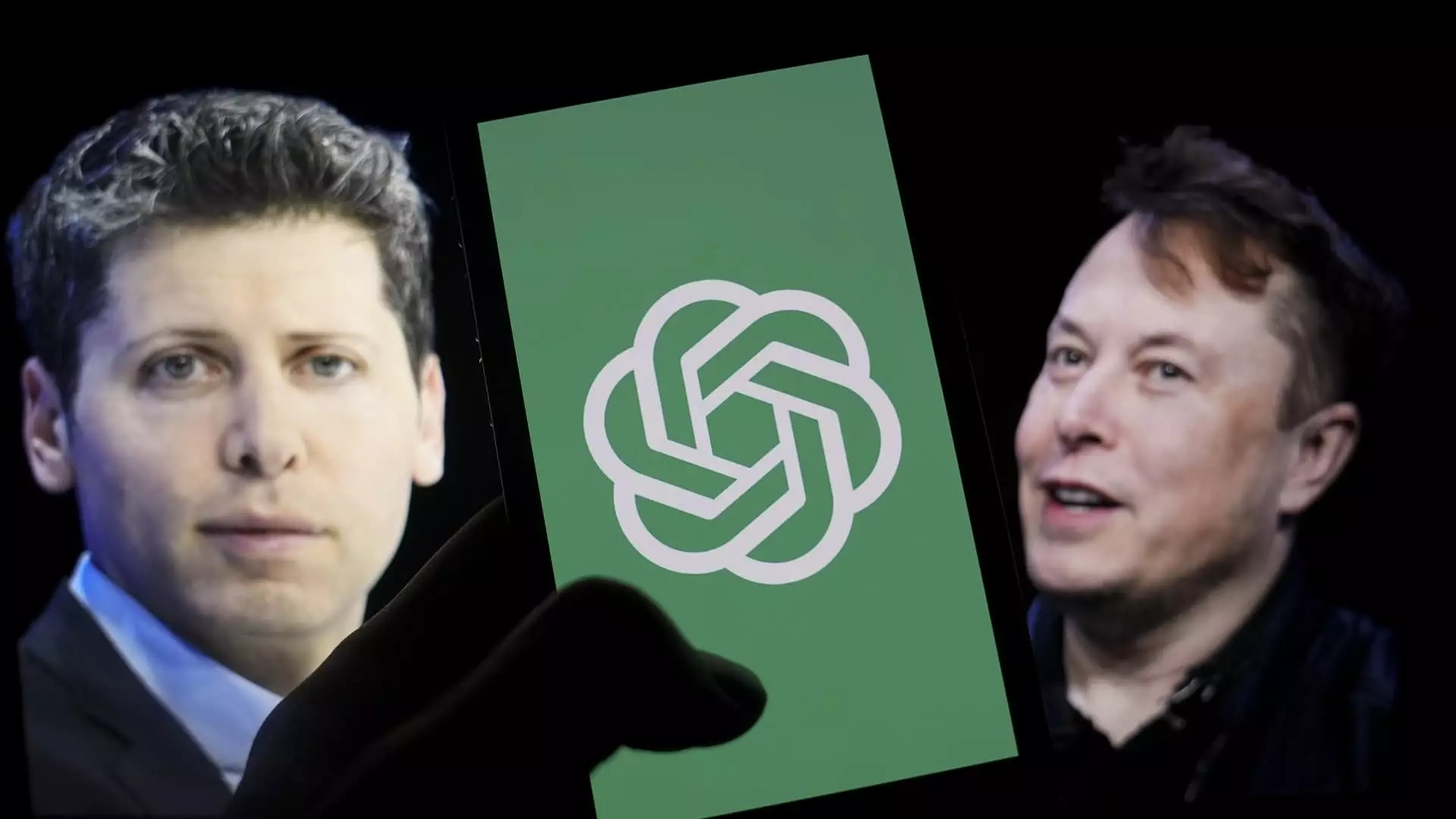The tech world is witnessing a significant legal squabble involving Elon Musk, a prominent figure in the AI sector, and OpenAI, a once non-profit endeavor that has become a significant player in artificial intelligence. Musk, along with his AI startup xAI and former OpenAI board member Shivon Zilis, filed a preliminary injunction against OpenAI, aiming to halt its transformation into a fully for-profit entity. This legal maneuver not only questions OpenAI’s business practices but also highlights broader concerns about competition and the future landscape of artificial intelligence.
The allegations levied by Musk’s legal team are serious. They argue that OpenAI is engaging in behavior that violates federal racketeering laws, known as RICO laws, and infringes upon antitrust regulations. The crux of the complaint lies in OpenAI’s alleged coercion of investors to avoid funding competitors, including Musk’s xAI, which raises concerns about monopolistic practices. Musk’s team contends that this “group boycott” disables xAI’s opportunity to secure critical investment capital required to compete effectively in the burgeoning AI market.
The stakes are high, as they symbolize not merely a personal feud between Musk and Sam Altman, CEO of OpenAI, but encapsulate a larger struggle over control and influence in the artificial intelligence sector. As generative AI continues to grow in significance and potential profitability, the legal implications of these maneuvers will likely reverberate through the industry.
Significantly, the ongoing saga is characterized by Musk’s persistence in pursuing legal action against OpenAI. His initial filing in March 2024 was withdrawn and later reprised in federal court, an indication that Musk is not merely reacting to grievances but strategically mobilizing legal resources to challenge OpenAI’s practices at their core. Led by prominent attorney Marc Toberoff, Musk’s legal counsel has broadened the scope of the litigation to scrutinize the underlying financial alliances between Microsoft and OpenAI.
Microsoft has invested heavily in OpenAI, totaling nearly $14 billion, but their governance structure has raised questions among regulators. The intertwined affairs of these companies are under investigation by the Federal Trade Commission (FTC), which is assessing the degree to which corporate interlocks might distort the competitive dynamics of the AI landscape.
OpenAI’s transition from a non-profit to a capped-profit model in 2019 was controversial, and the current shift to a fully for-profit status has incited further debate. This restructuring is not merely about financial incentives; it also raises ethical questions about the mission of AI development and the stewardship of technology. OpenAI initially heralded its commitment to benefiting humanity, a claim that critics now question given its potential shift toward profit-maximization.
Musk’s legal move highlights a perceived betrayal of these principles. His argument implies that the business model change effectively transforms OpenAI into a competitor undermining other players in the market, including xAI. Thus, the tension echoes a larger dialogue within the tech community regarding the balance between profit and purpose in the development of transformative technologies.
As the generative AI market is projected to soar to a valuation of over $1 trillion in the next decade, the competition between companies feels more critical than ever. Musk’s xAI, despite being new on the scene, has managed to capture significant attention and is raising substantial funds to enhance its capabilities. This competitive atmosphere, marked by escalating business spending in AI technologies, serves as a backdrop to the legal conflict.
Musk’s strategic foray into AI with xAI aims not only to challenge OpenAI’s dominance but to redefine the narrative surrounding AI development. The emergence of various startups, including xAI and Anthropic, against the backdrop of major players like Google and Microsoft emphasizes that the field is rich with potential and rife with contention.
This legal confrontation between Musk and OpenAI is not merely an isolated dispute but a critical moment in the governance of artificial intelligence. It raises pivotal questions about competition, corporate ethics, and the future of AI technology. As the case unfolds, the outcomes will likely impact not only the parties involved but the broader industry and societal trajectory for AI development. The implications of this lawsuit extend beyond Musk and OpenAI, inviting scrutiny from regulators and stakeholders keen on understanding how AI will evolve amidst competing interests and corporate transformations. The resolution of this conflict may well redefine the landscape of artificial intelligence for years to come.

